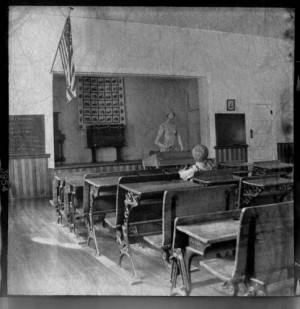Public education is, by its very nature, tangled with policy, dependent on rules and regulations set by federal, state, and district mandates. What most students do in school at any given moment has been prescribed by legislation passed years before they -- or their parents -- entered kindergarten.
But things are changing -- and quickly. With access to the Internet and learning devices in the hands of kids and teachers, and with technology ever-evolving and becoming ever more affordable and ubiquitous, the school experience will have to change.
This was the big message echoed yesterday by folks like the Department of Education's Director of Technology Karen Cator, Innosight Institute's Michael Horn, former Governor Bob Wise who's now president of the Alliance of Excellent Education, and former Governor Jeb Bush, of the Foundation for Excellent Education. They were gathered to talk to journalists from around the country about how and where these changes are happening.
What's unusual about this moment in time is the collision between a number of forces at work: a strong-voiced, growing grassroots movement of teachers who object to having their hands tied by an obsolete testing system, a hungry tech industry eager to jump into the education sector, a receptive Secretary of Education who wants to provide incentives for innovations, and successful examples of school models that are showing signs of high student achievement AND engagement.
But these changes will happen whether or not government on any level or the entrenched public education system mandates them.


